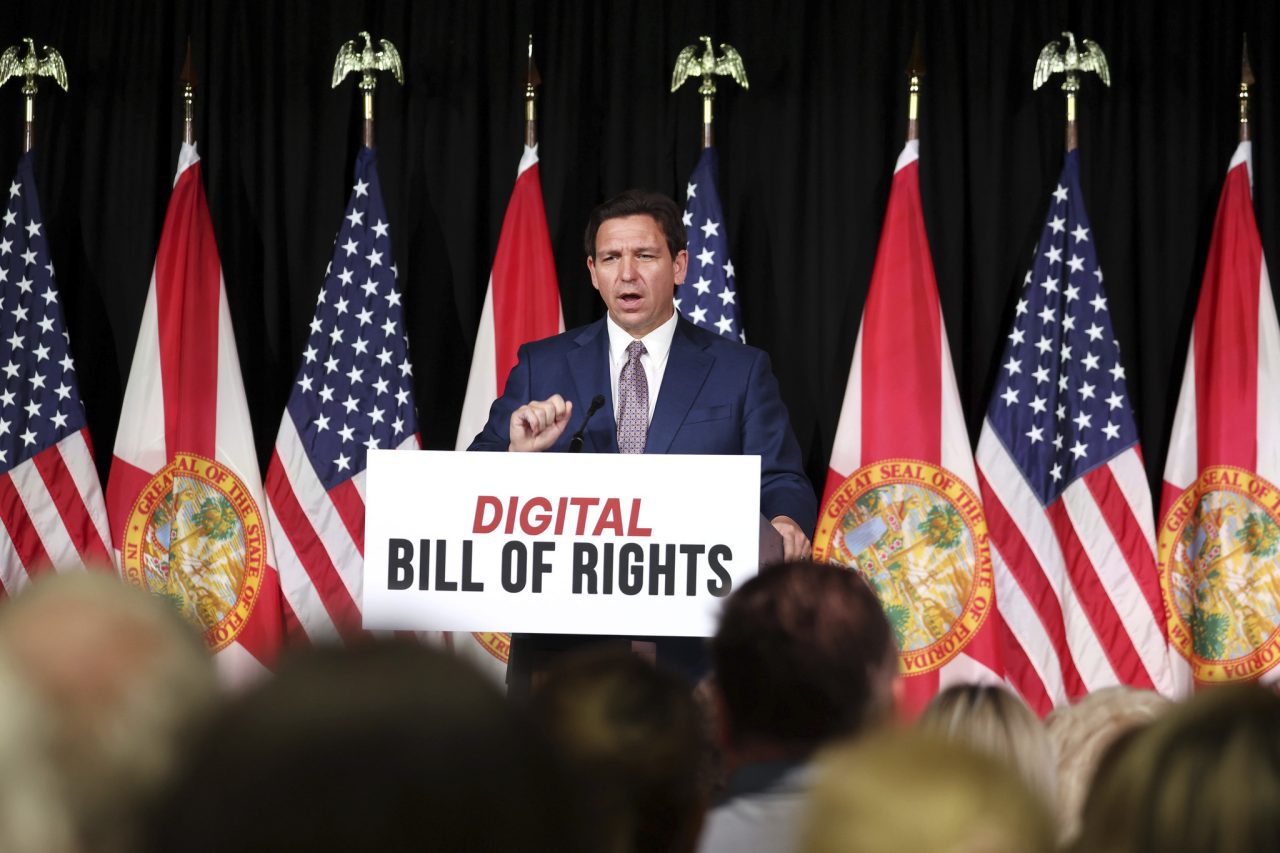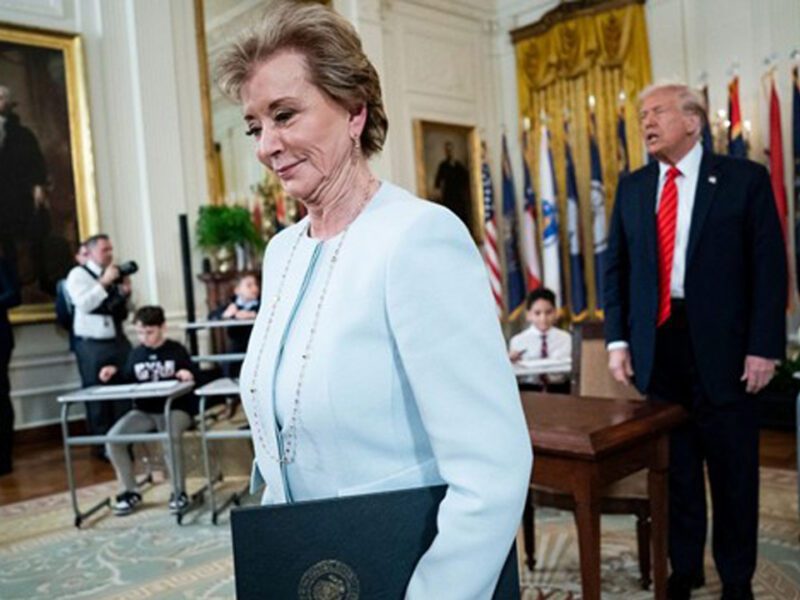DeSantis proposes to ban TikTok on government devices and university and public school internets
Orlando Sentinel | By Angie DiMichele | February 15, 2023
Gov. Ron DeSantis plans to see Florida join a growing list of states that have passed legislation to restrict the use of TikTok, one of the most popular social media sites in the world.
At a news conference centered around security concerns and big tech at Palm Beach Atlantic University in West Palm Beach on Wednesday, DeSantis announced his “Digital Bill of Rights” that would, in part, ban using TikTok and other platforms “tied to China and other foreign countries of concern” on all government devices and ban accessing the sites while using universities, public schools or government offices’ internet.
The initiative would also require Google and other major search engines that DeSantis said are “manipulating search results” to share how the sites determine which results are returned, including whether any “politics, partisanship or ideology is taken into account,” prohibit big tech companies from “surveilling” people through cell phones and “protect the right to participate in online platforms without unfair censorship,” claiming platforms are removing users who express conservative viewpoints.
:quality(70)/cloudfront-us-east-1.images.arcpublishing.com/tronc/YO7EXEXOHBDKHA6UFPMN3UKV2M.jpg)
“They have certain rules, but those rules are applied with a thumb on the scale against the people they disagree with politically,” DeSantis said.
TikTok is owned by ByteDance, a Chinese company that moved its headquarters to Singapore in 2020. It has been targeted by critics who say the Chinese government could access user data, such as browsing history and location. U.S. armed forces also have prohibited the app on military devices.
TikTok is consumed by two-thirds of American teens and has become the second-most popular domain in the world. But there has long been bipartisan concern in Washington that Beijing would use legal and regulatory power to seize American user data or try to push pro-China narratives or misinformation.
Nearly half the states have banned the app on state-owned devices, including Mississippi, Indiana, Louisiana, North Carolina, South Dakota and Wisconsin. Congress also recently banned TikTok from most U.S. government-issued devices over bipartisan concerns about security.
The Kentucky Senate unanimously passed a bill Friday that would ban the social media site from government devices, and several universities across the country have issued similar bans citing security risks.
“You look at the TikTok they use in China, it’s much different than what they’re trying to do in the United States,” DeSantis said. “With China, it’s all very wholesome, patriotic. In the United States, they’re trying to inject as much garbage into this as possible. They’re getting the data from people, creates a huge security risk through our country.”
The governor did not explain how the measures in the proposal would be enforced at the news conference. The state Legislature’s session starts in March.
Republican Rep. Carolina Amesty filed a bill on Jan. 31, 2023, House Bill 563, that proposes prohibiting government-issued cell phones and devices from having TikTok or any other platforms created or owned by ByteDance, in addition to prohibiting employees from downloading those sites, according to the bill.
DeSantis has taken aim at big tech companies before, signing Senate Bill 7072 in 2021 that, in part, prohibited big tech companies from banning Florida politicians on sites, allowing the Florida Election Commission to fine companies that removed statewide candidates $250,000 per day and $25,000 a day for other candidates. The U.S. Court of Appeals for the Eleventh Circuit found the bill unconstitutional. That decision was appealed to the U.S. Supreme Court.
“I would point out, 2021 I said at the time it was going to go to the Supreme Court … So we went into that eyes wide open. We knew it was going to be challenged all the way to the Supreme Court,” DeSantis said at the conference.
In September, DeSantis signed an executive order that prohibited “government entities from procuring technology products and services from companies owned by, controlled by, or domiciled in foreign countries of concern, including China,” according to a news release issued by the governor’s office Wednesday.
Touting the legislation passed surrounding parental rights in Florida, DeSantis said the proposal would also “protect children from various online harms” by prohibiting businesses from selling minors’ personal information without their parent or guardian’s consent and prohibiting “the unauthorized collection, use or sharing” of students’ personal data collected from online school programs.
“So this is helping parents, and this is, of course, part of a larger effort that we’ve done to support parents’ rights in the state of Florida, and we’re going to continue to do that and make sure that our children are protected,” DeSantis said before referencing the removal of books in several counties that he called “really explicit, pornographic materials.”
Speaking at the news conference along with Florida Department of Law Enforcement Commissioner Mark Glass and Attorney General Ashley Moody was Shannon Chapman, called on to make an example about the need for protecting children online.
Chapman, the mother of 9- and 11-year old boys, said that “things that were previously considered innocuous and entertaining now have an agenda” in media her children consume.
Her then 8-year-old son watched a “graphic” TikTok after it was “automatically prompted” on YouTube after he finished watching a video of a toy he wanted for Christmas, Chapman said.
“My son would go on to have nightmares about what he witnessed,” Chapman said.
John Reichard, who attended the news conference, said he has adult children ages 21 and 18.
“God, she’s got a full time job just monitoring what they’re doing,” he said of Chapman. “It takes a full time person just to do that.” He said that what DeSantis is doing should “happen at the federal level.”






